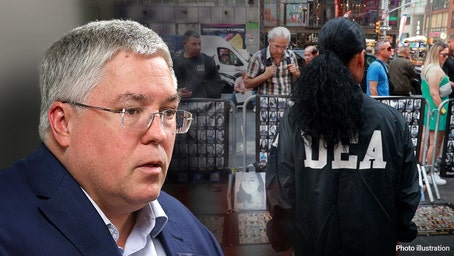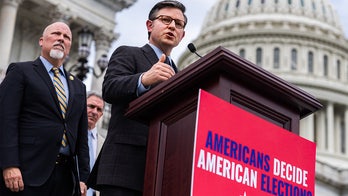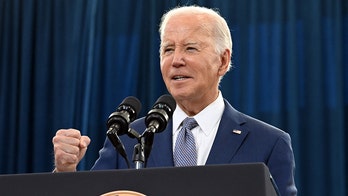Media pundits criticize Justice Samuel Alito for reportedly flying an upside-down American flag, while Justice Clarence Thomas argues against the use of race in voting maps, calling into question a landmark civil rights decision.

Liberal media pundits have lambasted Justice Samuel Alito after reports surfaced that he flew the American flag upside down in the weeks following the January 6, 2021 attack on the Capitol. The controversy has sparked outrage and accusations of disrespect for the nation's symbol.
Meanwhile, in a separate development, Justice Clarence Thomas has penned a concurring opinion in a Supreme Court decision upholding a GOP-drawn redistricting map in South Carolina, taking aim at a key civil rights decision from the 1950s.

In a 6-3 ruling, the Supreme Court sided with the Republican-led legislature, arguing that challengers must prove that race was the primary motivation for the redistricting, not partisanship. Justice Alito wrote the majority opinion.
Justice Thomas, in his concurrence, criticized the landmark 1954 Brown v. Board of Education decision, which outlawed school segregation, calling it an "extravagant [use] of judicial power." He argued that federal courts should not have the authority to determine how voting maps are designed.

"The Constitution provides courts no power to draw districts, let alone any standards by which they can attempt to do so," Thomas wrote.
He pointed to the Supreme Court's decision last year banning affirmative action in college admissions, where he wrote a concurrence arguing against any form of race-based discrimination.

"Individuals are the sum of their unique experiences, challenges, and accomplishments," Thomas said. "What matters is not the barriers they face, but how they choose to confront them. And their race is not to blame for everything — good or bad — that happens in their lives."
In the past, Thomas has expressed skepticism about the use of race as a factor in voting rights cases. He wrote a lone concurrence in 1995, stating that government "benign discrimination" aimed at helping racial minorities is a form of discrimination.
"The view of equity required to justify a judicial mapdrawing power," Thomas argued, "is wholly alien to our constitutional tradition."
Thomas argued that the Supreme Court's jurisprudence in redistricting matters puts states in a "lose-lose situation," as they must constantly consider race when drawing districts. He criticized the Court's decision last term favoring Black voters in Alabama, which he and two other justices dissented from.
"There is no density of minority voters that this Court’s jurisprudence cannot turn into a constitutional controversy," Thomas wrote. "The Court’s involvement in congressional districting is unjustified and counterproductive."
The clashes between Justices Alito and Thomas highlight the deep ideological divide on the Supreme Court, particularly on issues of race and voting rights. The Court's decisions in these cases will undoubtedly shape the future of American politics and jurisprudence.










